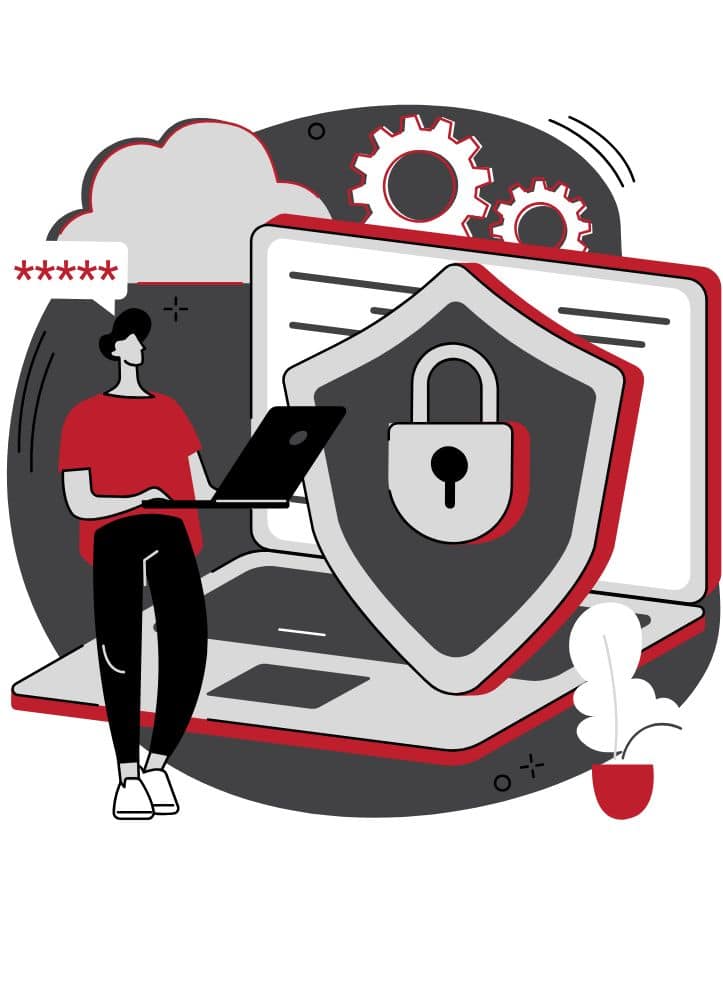Cybersecurity is no longer just a concern for large corporations. Small businesses are increasingly becoming targets for cybercriminals, who often see them as easier prey due to limited resources and security measures. In today’s digital world, even a single cyberattack can have devastating consequences for a small business.
Fortunately, following best practices can greatly reduce these risks. Here are 10 essential cybersecurity strategies every small business should adopt.

10 Best Practices to Protect Your Business
1. Use Strong and Unique Passwords
Weak passwords are a common entry point for cybercriminals. Require employees to use strong, unique passwords and implement a password manager to store them securely.
2. Implement Multi-Factor Authentication (MFA)
MFA adds an extra layer of protection by requiring a second form of verification, such as a code sent to a smartphone. This significantly reduces the likelihood of unauthorized access.
3. Keep Software and Systems Updated
Outdated software often contains vulnerabilities that hackers can exploit. Enable automatic updates or establish a schedule to regularly update all systems and applications.
4. Educate Employees on Phishing Scams
Phishing emails are one of the most common cyberattack methods. Train your team to recognize suspicious emails, links, and attachments, and encourage them to report any red flags.
5. Secure Your Wi-Fi Network
Ensure your business Wi-Fi network is encrypted and protected by a strong password. Use a separate guest network for visitors to prevent unauthorized access to your main systems.
6. Limit Access to Sensitive Data
Not all employees need access to all your data. Use role-based permissions to ensure only authorized personnel can view or modify sensitive information.
7. Conduct Regular Data Backups
Backing up your data ensures you can recover quickly in case of a breach or ransomware attack. Store backups securely, both on-site and in the cloud, and test them regularly.
8. Install and Maintain Firewalls and Antivirus Software
Firewalls act as a barrier to unauthorized access, while antivirus software detects and removes malicious files. Regularly update these tools to stay ahead of new threats.
9. Develop an Incident Response Plan
Be prepared for potential breaches by creating a clear plan for handling cyber incidents. Include steps for isolating threats, notifying relevant parties, and restoring systems.
10. Partner with a Managed Security Services Provider (MSSP)
Outsourcing your cybersecurity to an MSSP like MaxTech Agency ensures professional, 24/7 threat monitoring and proactive protection. This allows you to focus on running your business while experts handle your security.

The Benefits of Proactive Cybersecurity
By implementing these best practices, your small business can significantly reduce its vulnerability to cyberattacks. Beyond immediate protection, strong cybersecurity measures also build trust with your customers, who value knowing their information is safe.
Consider the story of a local business owner who partnered with a cybersecurity provider after experiencing a phishing attack. With proper training and monitoring in place, the business has since avoided any further incidents, saving time, money, and stress.
How MaxTech Agency Can Help
Protecting your small business doesn’t have to be overwhelming. MaxTech Agency specializes in providing tailored cybersecurity solutions, including:
- Vulnerability assessments to identify weak points in your system.
- Comprehensive employee training to minimize human error.
- 24/7 threat monitoring to detect and respond to potential breaches.
Take the Next Step Toward Better Security
Cybersecurity is not optional in today’s digital landscape. Start securing your business today by scheduling a free cybersecurity consultation with MaxTech Agency. For additional tips and tools, download our Cybersecurity Best Practices Checklist and subscribe to our newsletter for ongoing updates.
Don’t wait until it’s too late—protect your business now and ensure a safer future.

